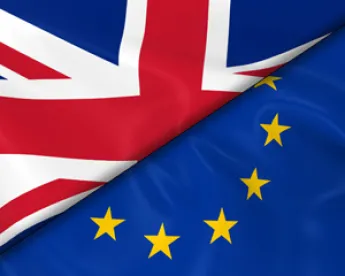Analysing the legal consequences of a potential Brexit and possible alternatives for the future relationship of the UK with the EU requires taking into account of the specific aspects of each relevant industry and sector.
The general principles which are the starting point of each sector and industry specific analysis are the following:
Membership of the EU means, that the persons, entities, companies, products and services which benefit from the membership also benefit from the rights of the free movement of goods, services, capital, establishment and persons.
Such rights of free movement within the EU mean that there is an implied mutual recognition, and that Member States are, subject to certain exceptions, prohibited from directly or indirectly restricting the sale or distribution of goods and services, the movement of capital or persons, or the establishing of subsidiaries, branches and other establishments by persons and companies domiciled in another Member State. However, if the UK ceased to be a Member State, then each of the remaining 27 Member States could, in principle, prohibit companies established in the UK from doing business within their territories.
EU Law primarily exists in the form of two European treaties, as well as thousands of Directives and Regulations (so-called secondary EU law).
In principle, Regulations are automatically and directly applicable in all Member States of the EU. If the UK ceases to be a Member State, then the existing EU Regulations would no longer be applicable in the UK, unless the UK adopts domestic legislation which provides for a continuation of the application of the relevant Regulations. Directives, however, are not automatically applicable in Member States, but must be implemented by domestic legislation. EU Directives have been implemented in the UK mainly in the form of Statutory Instruments. Accordingly, the legislative bodies of the UK would need to decide, on a case by case basis, how to deal with the relevant legislation following a Brexit, taking into account the negotiation with the EU in respect of the future UK-EU relationship.
Existing domestic legislation in the remaining 27 Member States of the EU would not be automatically modified following a Brexit.
For example, domestic legislation implementing EU law in the area of banking, insurance and other financial services as well as in other sectors and industries like air transportation and shipping, healthcare and car manufacturing regularly refers to such institutions and producers and their products being granted mutual recognition and so-called EU Passports. These are granted provided that such institutions and producers are situated or the relevant products originate in a Member State of the EU or the EEA. Once the UK is no longer in the EU (and thus also no longer a Member State of the EEA), any such reference in the domestic legislation of the remaining 27 Member States of the EU would, subject to any grandfathering rules agreed upon, no longer be applicable to institutions and producers situated in the UK. Domestic legislators of each of the remaining 27 Member States of the EU would be free to decide how to treat institutions, producers and products from the UK, and the UK would be equally free to decide how to deal with institutions, producers and products from the EU.
International Agreements which the EU has entered into with non-EU countries like Association Agreements, Free Trade Agreements, Cooperation and Partnership Agreements, Air Transportation Agreements, Agreements relating to Fishery and various other Agreements would no longer be applicable to the UK after Brexit.
Institutions and corporates situated in the UK would accordingly no longer have the benefit of such Agreements. The continued existence of such Agreements could not be regulated in the Withdrawal Agreement between the UK and the EU, but would require the cooperation and consent of the relevant other countries around the world.
The Parent Subsidiary Directive 2011/96, as amended by Directive 2015/121 will cease to apply.
Accordingly the domestic laws of the 27 Member States of the EU can provide for taxation and withholding taxes on dividends paid from such Member States to the UK, subject only to relevant existing Double Taxation Treaties.
Commercial contracts, banking contracts, insurance contracts and other contracts often contain references to counterparties, debtors, obligors, guarantors or other entities, assets, products or services being domiciled in or originating from a Member State of the EU.
If the UK ceased to be a Member State, such existing contractual arrangements would need to be revisited as references to the UK being a Member State may require the contract to be amended. Further, other contractual provisions, like termination clauses, increased cost clauses or material adverse change clauses, may be triggered by a Brexit. Accordingly an analysis of existing contractual arrangements needs to be done and potential precautionary measures for contractual arrangements need to be considered.





 />i
/>i

